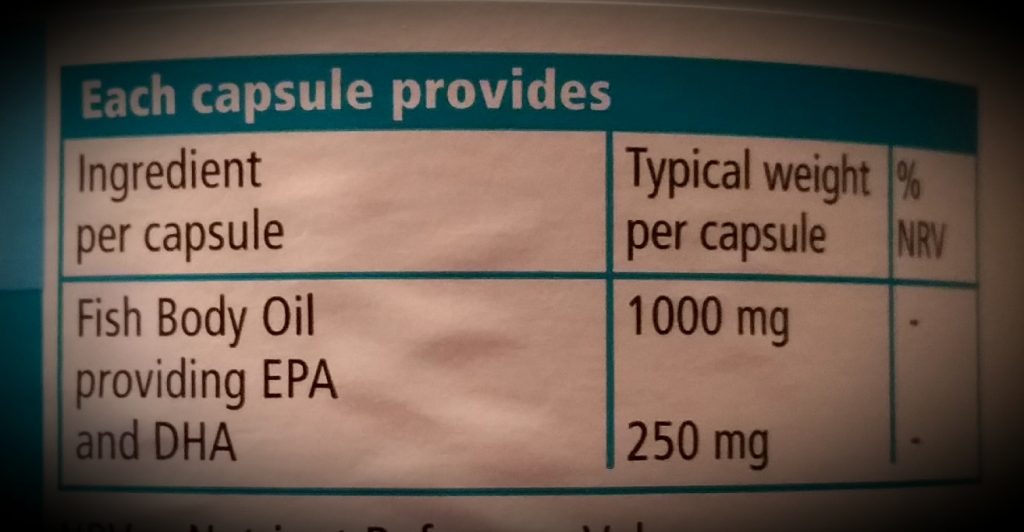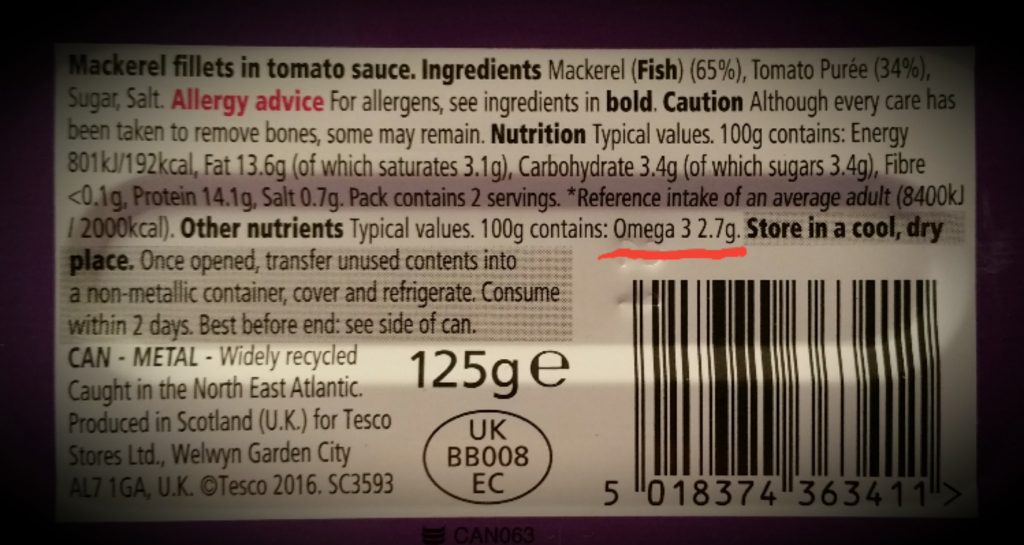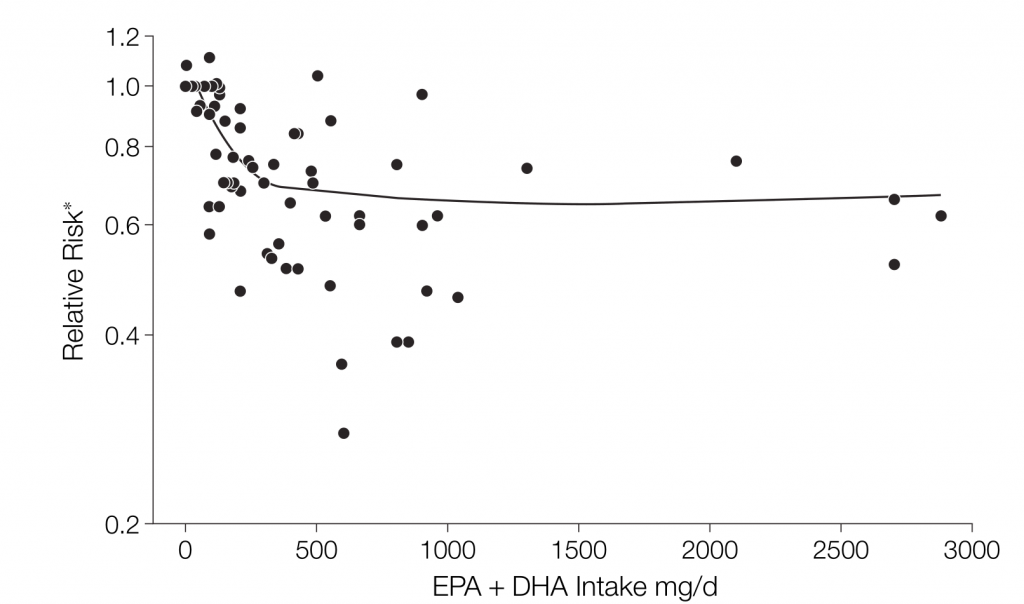 Fish oils show a number of health benefits in humans including a beneficial cardioprotective effect. These benefits centre on the ability of the long chain fatty acids in fish to reduce inflammation. As inflammation is a driver of oxidative stress, and oxidative stress is associated with a number of Western lifestyle diseases, the anti-inflammatory effects of fish oils may well have a range of effects based on this mechanism of action. The two fatty acids in fish oils that are responsible for its anti-inflammatory effects are eicosapentaenoic acid (EPA, C20:5 (n-3)) and docosahexaenoic acid (DHA, C22:6 (n-3)). Commercially available fish oils contain both of these fatty acids, with the content of EPA being slightly higher than that of DHA. The total amount of EPA and DHA in a typical 1000 mg fish oil capsule is about 250 mg of combined EPA and DHA. Knowing how much fish oil to take is important because fish oils are easily oxidised and high intakes of oxidised oils may start to produce detrimental effects.
Fish oils show a number of health benefits in humans including a beneficial cardioprotective effect. These benefits centre on the ability of the long chain fatty acids in fish to reduce inflammation. As inflammation is a driver of oxidative stress, and oxidative stress is associated with a number of Western lifestyle diseases, the anti-inflammatory effects of fish oils may well have a range of effects based on this mechanism of action. The two fatty acids in fish oils that are responsible for its anti-inflammatory effects are eicosapentaenoic acid (EPA, C20:5 (n-3)) and docosahexaenoic acid (DHA, C22:6 (n-3)). Commercially available fish oils contain both of these fatty acids, with the content of EPA being slightly higher than that of DHA. The total amount of EPA and DHA in a typical 1000 mg fish oil capsule is about 250 mg of combined EPA and DHA. Knowing how much fish oil to take is important because fish oils are easily oxidised and high intakes of oxidised oils may start to produce detrimental effects.

Typical levels of EPA and DHA in a 1000 mg fish oil capsule are about 250 mg of combined EPA and DHA. Generally fish oils contain more EPA than DHA.
Studies have investigated the cardioprotective effects of fish oils. Results from such studies show that around 300 mg of EPA and DHA combined, is about the amount required per day, to provide optimal cardioprotection. A typical tin of mackerel contains around 3.36 grams of total omega 3 fats, most of this being EPA and DHA. Therefore a tin of mackerel, or equivalent omega-3 fat containing fish, per week, should provide enough EPA and DHA to obtain optimal concentrations. Fish oil capsules contain around 250 mg of combined EPA and DHA, and so 1 or 2 capsules should provide optimal cardioprotection. The detrimental effects of excessive fish oils come for two reasons. Firstly, they can be oxidised and this can increase lipid peroxidation in cell membranes. Secondly, high levels of fish oils can upset the omega-6 to omega-3 fatty acid ratio that is required for health. A typical Western diet supplies too much omega-6 fat, but supplying too much omega-3 fat may also have detrimental effects.

Tinned mackerel contains roughly 3.36 grams of total omega-3 fat per tin (2.7 grams per 100 grams). This omega-3 oils is mainly in the form of DHA and EPA. Eating tinned mackerel once per week may therefore supply enough EPA and DHA for optimal cardioprotection.

Analysis of the cardioprotective effects of fish oils show a large benefit at intakes from 0 to about 300 mg of combined EPA and DHA. From 300 to 1500 mg of combined oils, there is a much smaller increase in cardioprotection. At much higher concentrations above 1500 mg, there may be no real benefit, or even a slight detrimental effect. This would suggest that between 1 and 2 capsules of fish oil (assuming 1000 mg of fish oil per capsule) is about the level required for optimal cardioprotection.
Eat Well, Stay Health, Protect Yourself
RdB
